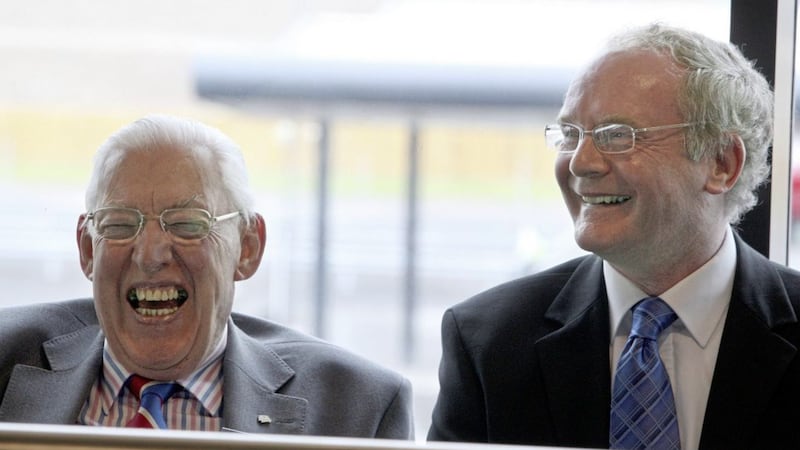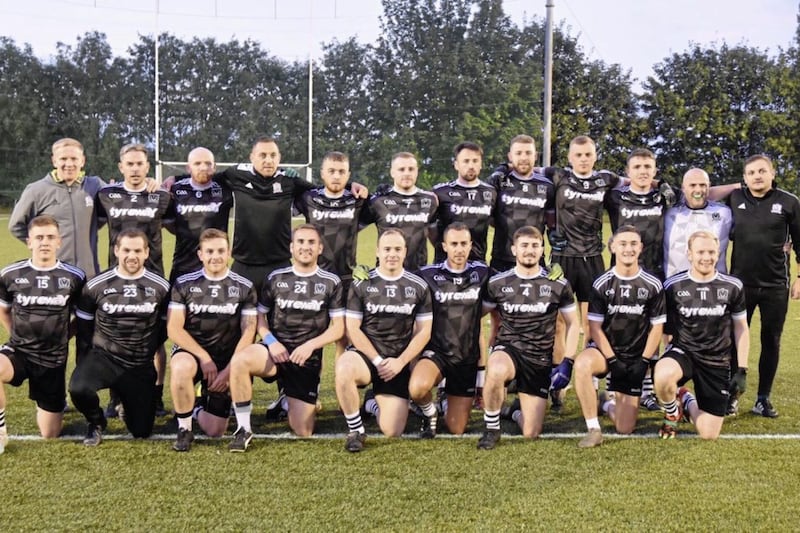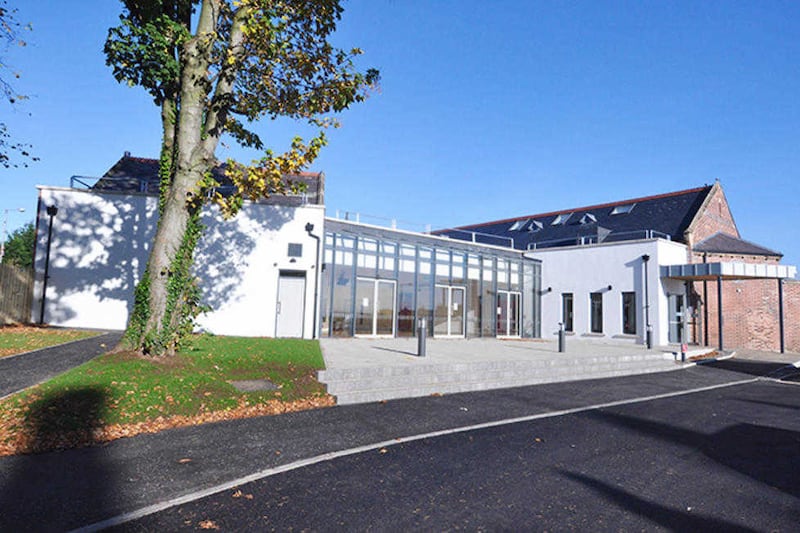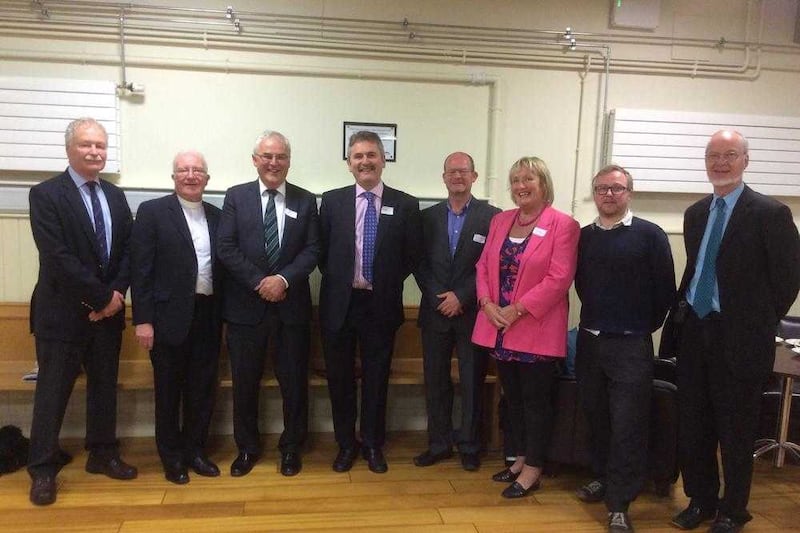THE weekend of August 15-17 1969 was a landmark in the life of the Ardoyne community in north Belfast.
My story, and there will be others like it, is that of a 10-year-old boy living in Brompton Park, right at the Woodvale and Twaddell interface.
I remember a sense of rising tension during the day on August 15. As buses were hijacked from the local depot and placed at the top of each street, the sense of excitement began to rise. It was as if a war movie was being filmed in our own street.
When evening came, excitement was replaced by a growing sense of fear.
As the fighting broke out, I remember trying to get to sleep with this thought: "If I go to sleep I won't feel it when they shoot me."
That evening a brutal wound was inflicted on the streets of our city.
I would like to share something of my struggle to find a theology of hope for this wounded city - a theology that is open and welcoming to all and that gives a dignity and a purpose to the lives of all.
Faith does not suddenly appear out of the blue. Faith belongs right at the heart of our life experience, and relevant theology can also only be drawn out of that lived experience.
Otherwise, it not only risks becoming irrelevant, but it ought to be seen as irrelevant.
Likewise, building peace and reconciliation in this wounded city does not come out of the blue, but arises from the heart of this wounded community.
'Reconciliation' is a word we have become almost too used to. Maybe we need to rediscover its meaning.
It comes from Latin and the word consists of four parts: 're', meaning 'again'; 'con', meaning 'with'; 'cili' is the Latin word for 'eyelash'; and 'ation' denotes an action.
Reconciliation, then, literally means 'the act of bringing back into eyelash contact' - the ability to touch eyelashes with another person, to look into another person's eyes without barriers or obstacles.
For me, that is a very new, different and dynamic understanding of reconciliation. It calls us to something new that goes further than we ever dared to think or imagine.
So in a city that is home for people who profess both different faith and no faith allegiance, how can we - together - promote healing and build a new future?
In the book of the prophet Habakkuk we read: "God, how long will I cry for help while you pay no attention? I denounce oppression and yet you do not save. Why do you make us see injustice everywhere? Are you pleased to look on tyranny? All we see is outrage, violence, quarrels, wars."
Those words of Habakkuk came 600 years before Jesus, but they could almost be read from our newspapers today.??
They could also be applied to the experience of the conflict here in this city: injustice; oppression; tyranny; violence; quarrels; war.
How does God respond to the people through Habakkuk?
"There is a vision that you've got to hang onto," he says, adding: "Write down the vision; inscribe it on tablets so it can be easily read since this is a vision for an appointed time. It will not fail, but will be fulfilled in due time."
The vision is then proclaimed by Jesus at the beginning of his public ministry.
I am sure you know the story well, as recorded in Luke's Gospel. They give him the scroll to read. He unrolls it carefully until he finds the words of the prophet Isaiah.
Then Jesus reads: "The Spirit of God is upon me. God sends me to proclaim good news to the poor, to give the blind new sight, to set the downtrodden free, to heal the broken-hearted, to proclaim God's year of Jubilee, of blessing."
It is a vision that speaks of the time when all debts are set aside, when prisoners are set free and where all people are welcome; an opportunity for a new beginning without carrying the burden of the past.
It is a time for peace, when everyone will share all that God has given, and a time when there will be fullness of life for every person.
That's the vision.?? In Luke's account, Jesus sits down and, with all eyes in the synagogue fixed on him, says: "This day, this passage is fulfilled even as you listen."
The healing gospel of Luke portrays the mission of Jesus as bringing the power of God's justice to those in need: those who are poor, captive, blind, oppressed.
In Luke, we find the recognition that if we are to commit to building a reign of God based upon justice, equality and dignity, then we must have the courage to challenge the inherently unjust systems and structures within our community.
The task in our wounded city is to work for a situation in which healing for all can occur and where all can freely express their identity and culture without threat or hindrance.
Luke also emphasises the boundary-breaking character of Jesus' mission - what would it mean for this wounded city if we looked beyond our own green and orange borders to recognise and celebrate the richness and to heal the wounds of those we perceive to be 'the other'?
Jesus, of course, faced opposition and eventually death in the pursuit of his mission.
The cross for him is a necessity, not a grim stroke of fate or designed to make suffering into some kind of noble idealism.
The cross is a clear recognition for us that if we set out to lead the kind of life that pursues healing, inclusion, welcome for all, the fight against unjust social structures and the upending of accepted social norms, then we will be asked to give nothing short of everything.
How did people know Jesus after the resurrection? At Emmaus they didn't recognise him immediately, but only when he showed his hands and revealed himself as the crucified risen Saviour by whose wounds we are healed.
The disciples encountered the crucified, risen one, and that is no less true today - we often find him as the crucified risen Saviour, and we meet him in our own experiences of crucifixion.
Our task today is the healing of a city that has been both crucified and crucifying.
It is a pity - scandal, even - that an explicit commitment to work for peace and reconciliation is missing from the pastoral plans of our churches, dioceses and parishes.
But what would be happening in our churches if we not only took up that task, but made it our priority?
What if all our churches' plans, visions and missions were measured against the barometer of advancing healing and reconciliation in our city?
Then we might be able to truly heal the wounds in this wonderful city.
- Brian McKee was born and brought up in Ardoyne. He has over 30 years' experience in youth ministry and adult faith development and is a former diocesan director of youth ministry in Down and Connor. He is director of Seedlings, a consultancy on pastoral renewal, and works with the Passionists in Tobar Mhuire Retreat Centre at Crossgar and in the parish of Holy Cross, Ardoyne in the work of peace and reconciliation.








